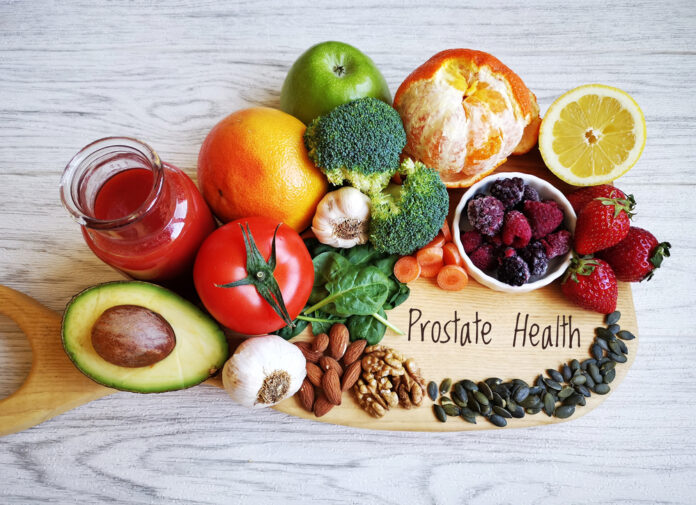
Diet can greatly affect prostate health. Here are six foods and drinks that can lower your risk of prostate cancer.
Cruciferous vegetables
Cruciferous vegetables include broccoli, cauliflower, and kale. Cruciferous vegetables have high amounts of antioxidants, minerals, phytochemicals (“Phyto” means plant), and vitamins. Broccoli is considered a prostate superfood because it contains a phytochemical called glucoraphanin, which researchers believe can convert to be able to attack and prevent the growth of cancer cells. Studies also imply that cruciferous vegetables can reduce inflammation, and inflammation may raise your risk of developing prostate cancer.
Berries
Oxidative stress (damage that happens to your cells and DNA gradually over time) is caused by free radicals (unstable metabolized atoms). Damaged DNA is not able to replicate properly, which can lead cells to become cancerous. Antioxidants work to neutralize and rid your body of free radicals. Berries are high in antioxidants anthocyanins, especially blackberries, blueberries, raspberries, and strawberries.
Fish
Certain types of fish are high in “good fats” that do not lead to inflammation, like saturated animal fats such as beef. Cold-water fish like trout, sardines, and salmon are particularly good sources. Researchers have found that prostate inflammation can encourage cancer development.
However, not all fish is beneficial. A Harvard University study concluded that lobster, scallops, shrimp, canned tuna, and others were more likely to cause inflammation.
If you would rather not eat fish, you can instead eat protein that comes from plants. In a study that followed 4,577 men who had prostate cancer over a period of 24 years, the participants who got the fat in their diets from vegetables were less likely to die of prostate cancer than the participants who ate animal fat.
Cooked tomatoes
Tomatoes are important for prostate health because they contain an antioxidant called lycopene in their cell walls. Cooking tomatoes loosens the bond between lycopene and the cell walls, so it makes it easier for your body to get more of the lycopene and deliver it to your prostate. Tomato juice, paste, and sauce are great sources of lycopene. If you cook your tomatoes in olive oil, it will be easier for your body to take in lycopene.
Tea and coffee
Green tea is an excellent source of catechin antioxidants like epigallocatechin-3-gallate and epicatechin (both referred to as EGCG). These antioxidants are thought to help protect cells from mutating or becoming cancerous.
Drinking several cups of green tea or one or two cups of coffee (with minimal sugar) daily can help reduce your risk of getting prostate cancer.


















